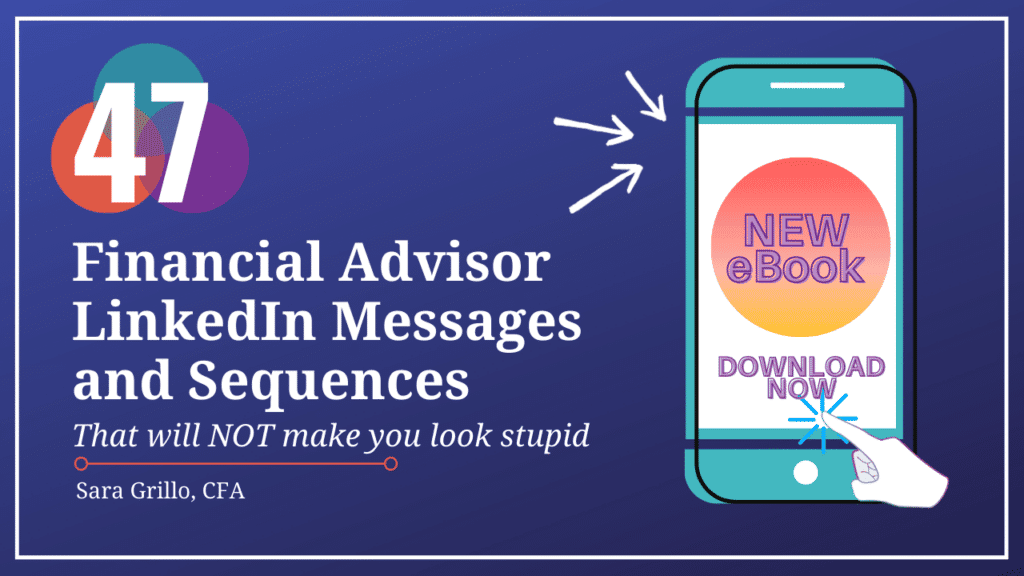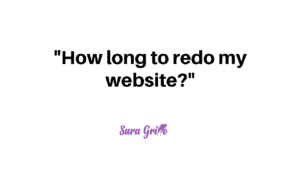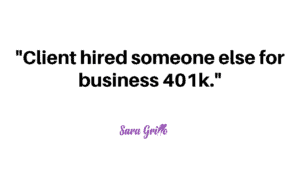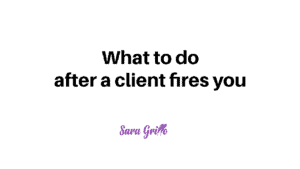Podcast: Play in new window | Download
Yeah, the title basically says it all. He’s taking the world by storm as an hourly financial planner, not managing any assets but simply giving out powerful financial planning guidance that clients love. Today we’ll hear from Kevin Estes of Scaled Finance as he talks about how he made it work.
But first…
For those of you who are new to my blog, my name is Sara. I am a CFA® charterholder and financial advisor marketing consultant. I have a newsletter in which I send you one actionable, practical marketing tip a day. Please sign up here!

Why he chose to become an hourly planner
Kevin noticed that there is usually more time spent in the early years in a client relationship. Yet under the AUM model, fees increase over time as the client’s portfolio grows. It seemed illogical to him that a client should pay higher fees for less time.
He figured out it would be better to invest more time initially to get people’s finances on the rails, and then adjust the amount downwards as the relationship progresses. His intent was to slowly trend down as time goes on and there is less to do for them.
Okay, let me just say that again.
He has the intention of charging his clients less, not more.
He is trying to minimize, in other words, the amount of fees he takes for his work.
Humility?
That is an understatement.
Kevin is also an advice-only planner. He doesn’t touch investments because he sees less opportunity to add value. He finds that alot of people prefer to manage their investments themselves, just with a little guidance from him.
His goal is to simplify, not complexify, things for his clients. This differs vastly from other advisors, who create complexity for the purpose of job security.
How does he get new clients?
He works with T-Mobile employees and their families, but he finds that alot of people reaching out do not fall into this category. He posts on LinkedIn and messages people and clients come to him.
What he sees as the challenges with being an hourly planner
According to Kevin, relationships take a long time to set up (creating the roadmap documents) and that time is not billable. Being a fiduciary, he can’t just run people through a cookie cutter model. He wants the process to be customized to what the client really needs.
Hourly planning is arguably the most transparent way to bill for your time, and this is why many advisors avoid it. Kevin says that it doesn’t have to be prohibitive. He tracks how all his time is spent on each relationship and he communicates clearly so that clients know what is going on at every point. He rarely gets questions on bills.
There is a safety that advisors perceive with the 1% model. That is because there is some opacity there. Kevin has thrust this aside and succeeded as an hourly financial planner based upon the strength of his logic, fairness, and commitment to the client. He says that as a fiduciary, his job is to return back multiples of the value of each dollar they spend on him. If he doesn’t, he feels he isn’t doing his fiduciary duty.
He takes the fiduciary duty very seriously and lives it, not just virtue signals it. Good for you, bro.
Communication is key when charging by the hour
Setting expectations the right way is critical when you are operating an hourly financial planning practice. Charging hourly is so transparent that there is simply no BS: you need to be able to justify the work done and the value that came from it.
My CPA charges hourly, and when I first started working with him, I was shocked by the first bill. It was almost $2,000! I brought this up to him and he offered to reduce it. Is that really fair to his other clients, if he did in fact spend $2k of time on me?
If my CPA had told me how lengthy the set up process was going to be in the first year, but that in the years the ensued the amount of hours would be drastically reduced, I wouldn’t have been so surprised.
With the AUM model, the fee is directed debited out of the account so most people don’t even realize what they are paying their advisor. As an hourly planner, you may have to shine a light on every single minute of time you are billing for. Take good notes and record all of it, and be ready to justify it, item by item, if asked.
How do you get clients to come back?
Sometimes people work with you episodically, doing a project for a few months and then you don’t hear from them for a year.
When he is wrapping up the relationship, he has a meeting to go over what they have accomplished. This allows them to see the value of what they have done so far. If he has ideas about what to do next, he proposed creating another project (and agreement). His goal is for the projects to get smaller and smaller over time.
How do you track time as an hourly planner?
Kevin tracks it on his phone but I have heard of others using apps such as GetMyTime or ClickTime.
I’ve also heard advisors say they use:
- Excel spreadsheets
- Paymo
- Harvest
- Toggl
- Clockify
- QB Essentials has a built in timekeeping system where you can track/enter time by client/project and then add that time to invoices.
- ClickTime
- GetMyTime
Note, I have not used any of these applications other than MS Excel, and am not endorsing any such application.
How does he bill?
How do you know that they are even going to complete the engagement?
Kevin says he charges half upfront and half upon completion.
How did he make it?
This is a summary of how Kevin made it as an hourly planner. These are good tips for anyone who wants to succeed as a financial advisor.
- Very focused niche on T Mobile employees
- Exceptional communication skills and expectation setting
- Built a good community online and nourishes them with high quality content
- Focus on always providing value for the time he bills for
Did you enjoy this hourly financial planner success story?
Alright that’s all for now.
Did you sign up for my daily newsletter?
Or if you want more…
Learn what to say to prospects on social media messenger apps without sounding like a washing machine salesperson. This e-book contains 47 financial advisor LinkedIn messages, sequences, and scripts, and they are all two sentences or less.

You could also consider this LinkedIn training program which teaches financial advisors how to get new clients and leads from LinkedIn.

Thanks for reading. See you in the next one!
-Sara G





